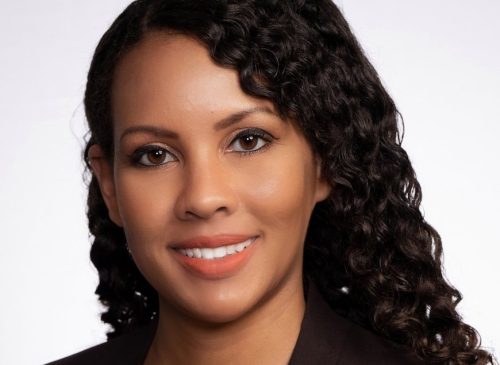By Mike Mastromatteo | Catholic News Service
California-based Catholic author Alessandra Harris’ next book will mark a significant change of direction for a writer known primarily for her fiction and journalism.
Tentatively titled “The Catholic Case for Black Freedom,” the nonfiction work is due for release in early 2023. The book will examine the history and “current manifestation” of anti-Black racism in the United States, from the Jim Crow era of the 19th century to the situation today.
“It will be of interest to Catholics because it will discuss how our faith calls us to go to the margins of our society and not turn a blind eye to the injustices felt by so many African Americans,” Harris told Catholic News Service.
Harris has already produced three novels along with a wide body of feature writing focused primarily on the search for justice and equality by Black Americans.
But while Harris targets the Catholic Church and its leaders for sometimes being lukewarm in pursuit of justice for all members of the community, she remains firmly committed to her Catholic faith and upbringing.
The mother of three sons and one daughter and a parishioner in the Diocese of San Jose, California, Harris is also a student in the diocese’s three-year Institute of Leadership in Ministry.

She initially studied theology at a West Coast Catholic university, before switching to comparative religious and Middle East studies at San Jose State University.
The comparative religion program had a significant influence on this cradle Catholic. Learning about Christianity, Islam, Judaism and other religious traditions around the world broadened her understanding and increased her empathy and tolerance.
“I went to Catholic school from kindergarten through my second year of college, and I would hear the refrain that the Catholic faith is the one, true path to eternal salvation,” Harris told CNS. “My mom didn’t even want me to attend non-Catholic church services. However, studying about world religions like Judaism, Islam, Buddhism, and other Christian denominations opened my eyes to other faiths and cultures (and) made me appreciate them.”
She said exposure to Middle East studies right after the 9/11 terrorist attack provided “an invaluable experience” and made her more sympathetic toward Muslim students in the U.S., who at the time were targeted for harassment and discrimination.
Harris embarked on a journalism career in 2007, when she began writing for an online publication geared toward the Black community in the San Francisco Bay area.
“From then until now, I have changed greatly, and my faith has grown and deepened in many ways,” she said. “For the majority of my writing career, I would have said I was a writer who is Catholic. However, I would now identify myself as a Catholic writer.”
In 2020, she helped establish the Black Catholic Messenger newspaper. While it maintains fidelity to the church and its magisterium, its tweets do not shirk from calling out Catholic institutions for their perceived shortcomings in the social justice area.
Harris had a ready response to the question of identifying as a Black Catholic rather than a generic one.
“I proudly describe myself as Black Catholic and come from a tradition that takes pride in both our faith and cultural heritage. While I do receive pushback from people who say we should just be ‘Catholic,’ those people don’t seem to take objection to terms like Irish Catholics, Polish Catholics, or even Roman Catholics.”
Harris stepped away from Black Catholic Messenger in 2022 to concentrate more on fiction and journalism think pieces. And since 2016, she has produced three lively, accessible novels: “Blaming the Wind,” “Everything She Lost” and “Last Place Seen.”
Harris’ stories focus on “almost-real” people struggling to live out their lives as parents, wives, husbands and best friends and young people coping with the angst and capriciousness of contemporary society. The female protagonists in her novels face problems such as marital infidelity, mental illness, raising children and persevering in the face of setback and loss. Despite the many hardships endured by the protagonists in her stories, they eventually come to understand the importance of taking responsibility for one’s actions as a key step toward forgiveness and reconciliation.
“I would say my fiction is influenced by my Catholic faith, because at the heart of my stories are values and truths that the characters are wrestling with,” Harris said. “Being Catholic doesn’t mean you’re perfect. Throughout the Scriptures we see imperfect people falling and God calling them back to him. Through my fiction I explore real life issues that all people, including Catholics, face. And redemption is always a part of that.”
Harris’ work also emphasizes reconciliation between fathers and daughters, husbands and wives and other partner relationships that at first blush seem damaged beyond repair. The need to carry on despite life’s setbacks and tragedies also permeates much of Harris’ narrative.
In “Blaming the Wind,” for example, the author presents her character, Tara, product of a broken home who cheats on her husband and takes part in a passionate affair with a married lawyer. As Tara and her aggrieved husband work to preserve their marriage, Tara expresses thoughts of remorse and regret, but with a suggestion of eventual reconciliation.
“I’m not the Madonna you once thought I was or the villain you think I am now. I’m somewhere in the middle. That’s where we all are — somewhere in the middle,” Tara says. “I’ve learned that sometimes you have to let go of who you were in order to become who you can be.”
The possibility of reconciliation expressed in Harris’ novels in many ways hints at the author’s imperative to persevere in the struggle for social justice. And the church, despite its administrative and all too human failings, can still play a key part in the struggle.
“The Catholic teaching about the human dignity of all people and how racism is contrary to that belief is most important,” Harris said. “However, we need repentance for the sins of racism committed by our government and white people. We also need reparation between the Black and white communities in order to move past the injustices that have occurred and continue to occur before. After that, I believe reconciliation can really start to happen.”
Mastromatteo is a writer and editor from Toronto.






















